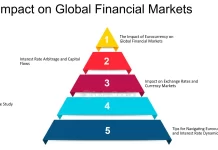Shares of corporations with public listings are traded on the stock market. In order to raise money, businesses that are going public (IPO) sell shares to the general public on the primary market. Historically, one of the most significant routes to financial success has been stock market investing.
Here are some of the type of stock market
1 Common stock
2 Preferred stock
3 Large-cap stocks
4 Mid-cap stocks
5 Small-cap stocks
1.COMMON STOCK
Common stock is the type of stock that most individuals invest in. Shareholders of common stock have the right to a proportionate share of the company’s residual assets in the event of dissolution, representing partial ownership in the business. The upside potential for stockholders of common stock is potentially limitless, but they also run the danger of losing everything if the business fails with no assets left over.
- PREFERRED STOCK
Preferred stock works differently in that it offers stockholders a preference over common shareholders in receiving a particular amount of money if the firm is dissolved. Preferred shareholders are likewise entitled to receive dividend payments before common shareholders. As a result, preferred stock as an investment sometimes mimics fixed-income bond investments more closely than standard common stock.
3.LARGE CAP
Large-cap corporations are well-established businesses with a sizable market share. Large-cap enterprises have market capitalizations of Rs 20,000 crore or higher. These firms dominate the industry and are extremely stable. They hold up well in times of recession or any other unfavourable event. Furthermore, they will have been in operation for decades and will have an excellent reputation.
Several large-cap market corporations that are listed on Indian stock exchanges are Reliance Industries and Infosys..
4.MID CAP
Mid-cap firms have a market capitalization that is greater than Rs 5,000 crore but less than Rs 20,000 crore. Investing in these companies can be riskier than investing in companies in the large-cap market. This is due to the fact that mid-cap stocks are more volatile. Mid-cap companies, on the other hand, have the potential to grow into large-cap companies in the long run. Because these companies have a better growth potential than large-cap equities, more investors are interested in investing in them.
Mid-cap companies that are listed on Indian stock markets include Metropolis Healthcare, Castrol India, and LIC Housing Finance.
5.SMALL CAP
Companies with a market value of less than Rs 5,000 crore are classified as small-cap. These firms are relatively tiny in size, but they offer great growth potential. The fact that they are risky stems from the poor likelihood of long-term success. As a result, the stocks of such companies are very volatile. Small-cap companies have a lengthy history of underperformance, but when an economy emerges from a slump, small-cap equities frequently thrive.
Small-cap market firms listed on Indian stock exchanges include Hindustan Zinc, DB Corp, KNR Constructions, and Hathway Cable.





























